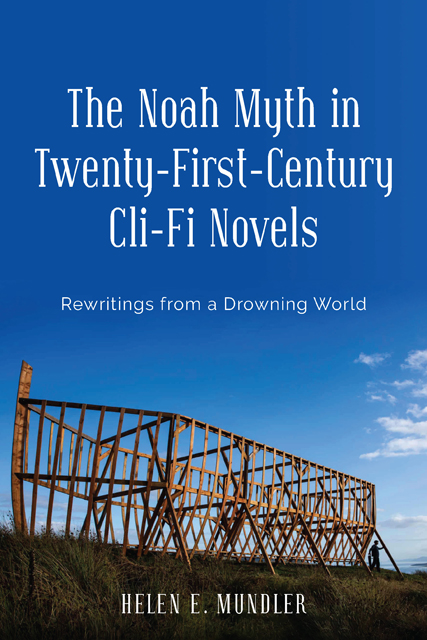Book contents
- Frontmatter
- Dedication
- Epigraph
- Contents
- Acknowledgments
- List of Abbreviations
- Introduction
- 1 An Odd Sort of Cli-Fi? Nathaniel Rich’s Odds Against Tomorrow
- 2 “Hadn’t mankind done it before—started from scratch?” Reinterpreting Visions of Past and Future in Margaret Atwood’s Maddaddam trilogy
- 3 Watering Down? Clare Morrall’s When the Floods Came
- 4 The Archive and After: A Kaleidoscopic Reading of Maggie Gee’s The Flood
- Conclusion
- Works Cited
- Index
Introduction
Published online by Cambridge University Press: 17 December 2022
- Frontmatter
- Dedication
- Epigraph
- Contents
- Acknowledgments
- List of Abbreviations
- Introduction
- 1 An Odd Sort of Cli-Fi? Nathaniel Rich’s Odds Against Tomorrow
- 2 “Hadn’t mankind done it before—started from scratch?” Reinterpreting Visions of Past and Future in Margaret Atwood’s Maddaddam trilogy
- 3 Watering Down? Clare Morrall’s When the Floods Came
- 4 The Archive and After: A Kaleidoscopic Reading of Maggie Gee’s The Flood
- Conclusion
- Works Cited
- Index
Summary
This book takes as a given the contention that humankind has entered the Anthropocene era, the defining feature of which is human-caused damage to the Earth (Trexler 2015, 1). Scientific discourse has shown that the extent of this damage is so serious and far-reaching that the future of the human race is in doubt, and in response to this, contemporary literary fiction has evolved to accommodate a shifting understanding of both time and space. The twenty-first-century novel can be defined in part by its expansion of space, with national borders fading away and a new sense of globalism made possible by technology and an interconnected world (Adiseshiah and Hildyard, 1–2). However, the novelistic consciousness has moved far beyond the geopolitical organization of the world, to take into account not only the global, human scale, but equally the planetary, non-human scale of the natural world. This has also affected the sense of time in the novel: David Watson argues that the temporal scales of literature have been “repeatedly reimagined and enlarged” to the extent that contemporary novels should be read as part of a “trans-chronological continuum of writing connected across deep time with other places and literatures” (57).
The term “deep time,” or the “longue durée,” refers to a very longterm view of history, starting before humankind’s appearance on Earth and probably ending after the extinction of the human race, or its transformation into various varieties of post-human. Such a view of time is opposed to history based on those events that have affected the development of the human race, a relatively recent phenomenon. Like Terence Malick’s 2011 film, The Tree of Life, which suddenly switches from more-or-less contemporary America to a scene in which the only characters are dinosaurs, the Anthropocene novel may deploy deep time by foregrounding the transitory nature of the human and the impermanence of human civilizations. This is where the story of Noah comes in.
The biblical story of Noah is well known to many people: God considers that humankind has behaved iniquitously and plans to flood the Earth as punishment.
- Type
- Chapter
- Information
- The Noah Myth in Twenty-First-Century Cli-Fi NovelsRewritings from a Drowning World, pp. 1 - 12Publisher: Boydell & BrewerPrint publication year: 2022



